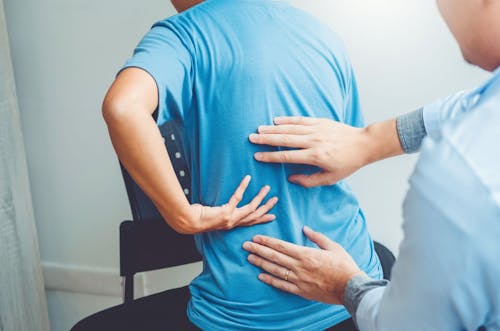Parkinson’s Disease is a progressive disease that affects the central nervous system and the ability to coordinate movement in the body. Since Parkinson’s Disease affects many areas of the brain, symptoms can vary in individuals and progression can be either mild, moderate or aggressive. Parkinson’s Disease typically affects one’s ability to walk with slower movements (bradykinesia) and difficulty with starting or stopping walking. In addition, movements tend to become slower along with tremors that may occur in the hands. Muscles can become quite rigid, leading to loss of motion and poor posture. A dangerous symptom is called retropulsion, where the tendency of an individual is to fall backwards with little to no ability to protect oneself.
Speech can also be affected with Parkinson’s Disease becoming slurred and slow due to poor activation of the mouth, tongue and throat muscles. In addition, eating and drinking can become challenging due to difficulty with swallowing. Symptoms may also include difficulty with writing, becoming illegible or very small.
How Therapy Helps
Physical therapy, occupational therapy, and speech therapy are essential therapies for people with Parkinson’s Disease. While there is no cure for Parkinson’s Disease currently, a tremendous amount can be done to improve one’s function and maintain gains. In coordination with your physician, rehabilitation focuses on improving movement, safety, independence with activities, transfers, cognitive and speech/swallowing. Physical therapists focus on improving range of motion, strength, stamina, safety with transfers from low surfaces, posture, and movement in patients with Parkinson’s.
Occupational therapists focus on movements of the upper extremities, cognitive improvements, coordination with dressing and caring for oneself, and adaptions to be independent as possible with daily living activities. Speech therapists focus on improving speech, safety with eating/drinking, cognitive abilities and improving writing. It is important to note that our rehabilitation professionals work together as a team to help you reach goals along with family training for attaining maximum independence. For more information, contact our physical therapists at Tucson, AZ center.


